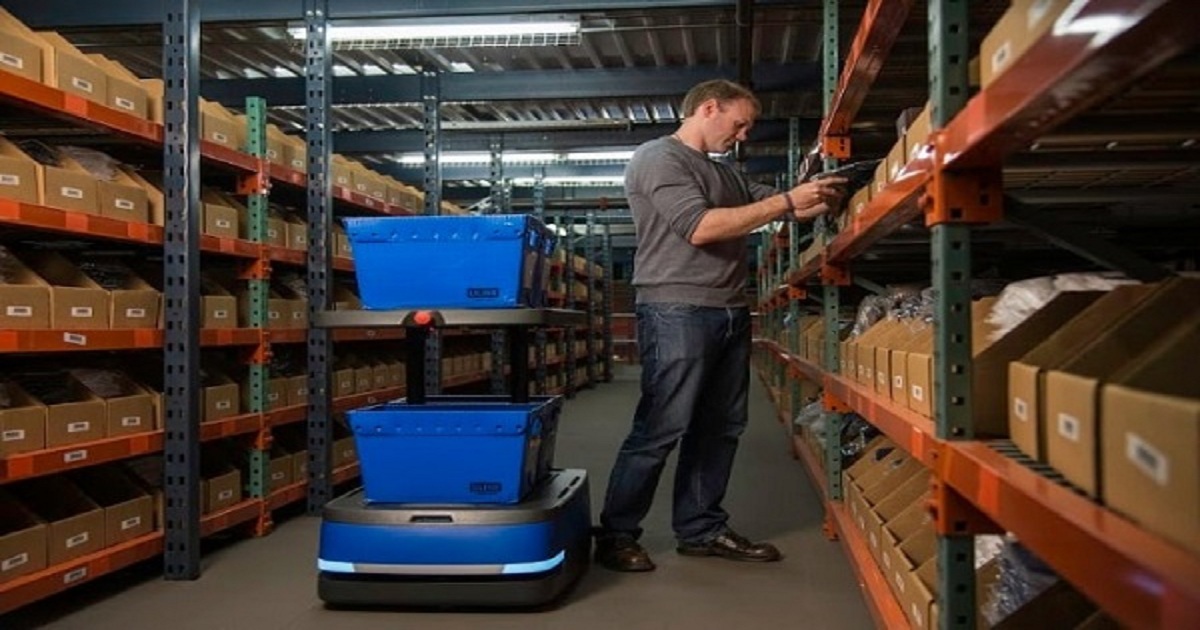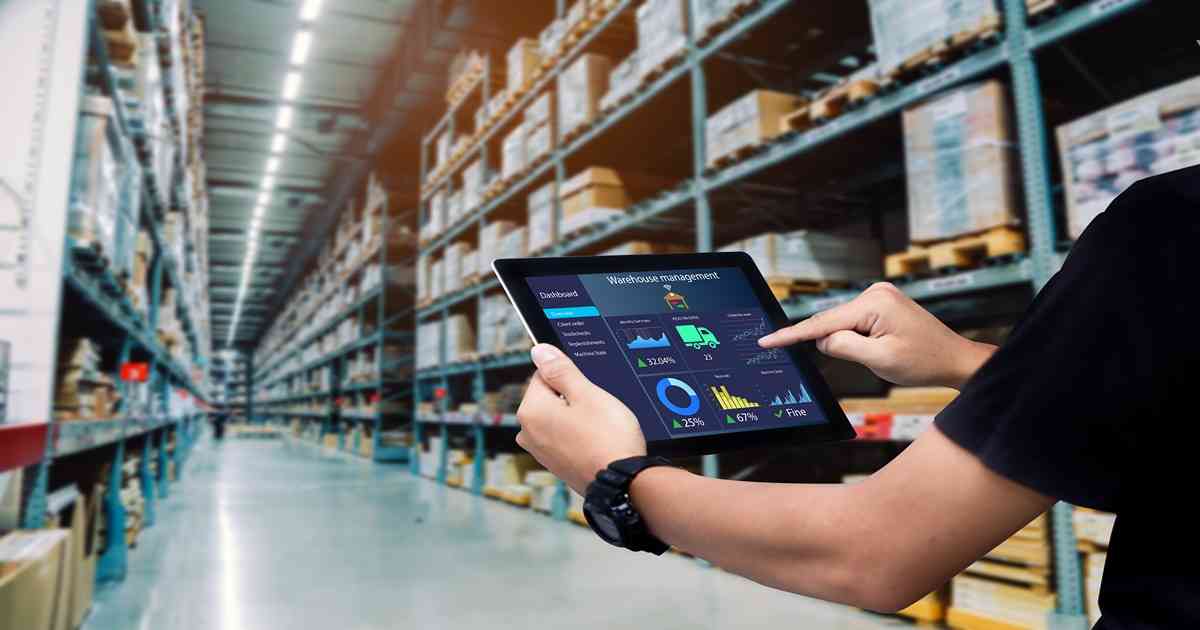
Warehousing and Distribution
Article | July 11, 2023
The rapid growth of e-commerce continues to create new challenges for retailers as they plan distribution strategies. One of those challenges is managing the high volume of returns. One in three shoppers returns items, and more than half read a company’s returns policy before making a purchase. Retailers lose $50 billion annually due to inefficiencies in processing returns, and distribution centers handling returns need 15% to 20% more space than a traditional facility.
Read More

Supply Chain
Article | August 17, 2023
Order picking is the most resource-intensive operation of a warehouse or fulfillment center. More than 55% of the operating cost for a warehouse is related to order picking, and fulfillment centers, the number stands at 50%. It is the process that can bring in the most cost savings with an effective, streamlined and efficient order picking system. One of the most important components of your order picking system is the warehouse order picking cart. Order picking carts are used to move inventory from the warehouse shelves to sorting or packing stations. They make it easier for warehouse associates to carry multiple items at a time or to carry large, unwieldy items. When it is possible to carry multiple items on a trip, it drastically reduces the distance traveled by associates on foot. It also helps to reduce physical fatigue and improves efficiency dramatically.
Read More

Supply Chain
Article | May 22, 2023
Data volume in supply chains is usually enormous. Analytics applied to the supply chain help make sense of the pile of information by identifying patterns and drawing conclusions.
Contents
1 Importance of B2B Supply Chain Analytics
2 Obstacles in Supply Chain Analytics Integration
2.1 Barriers in Collecting and Processing Data
2.2 Insufficient Technical Skills
2.3 Issues in Managing and Integrating Data
2.4 Inadequate Analytics and Insights Generation
3 Addressing Supply Chain Analytics Complexities for Better Decision-Making
3.1 Leveraging External Expertise
3.2 Enhancing Collaboration and Communication
3.3 Improving Data Quality and Governance
3.4 Developing Analytics Capabilities
4 Power of Successful Supply Chain Analytics Integration in Transforming Businesses
5 Conclusion
1 Importance of B2B Supply Chain Analytics
Supply chain analytics has become a pillar of contemporary business strategy, enabling organizations to leverage data insights and enhance vital supply chain processes. By utilizing real-time data analytics, businesses can streamline their supply chain operations, boost productivity, and increase customer satisfaction. With unparalleled visibility into key performance indicators, B2B supply chain analytics provide the opportunity to identify inefficiencies, reduce costs, and react swiftly to ever-changing market dynamics, streamlining the process for supply chain business analysts who manage supply data.
Leveraging the power of supply chain analytics tools is important for the success of modern businesses in the age of data-driven decision making. With the ability to optimize inventory levels, manage lead times, and reduce transportation costs, supply chain data analytics provides a competitive advantage that can increase the efficiency, productivity, and profitability of businesses of all sizes and in all industries.
2 Obstacles in Supply Chain Analytics Integration
Supply chain analytics integration has become increasingly critical for companies seeking to optimize their supply chain operations. However, several obstacles hindering successful implementation often complicate the integration process; hence, understanding and knowing them in advance is vital for smooth operations.
2.1 Barriers in Collecting and Processing Data
Effective data collection and processing are critical in generating accurate insights to drive supply chain analytics decision-making. However, it comes with challenges; the most critical obstacle is data silos, where data is stored in isolated systems or departments, leading to difficulties in accessing and integrating it. It gets more complex when different departments or partners use varied data formats or standards. Additionally, cleaning and processing data is also challenging, as it involves identifying and eliminating duplicates, inconsistencies, and errors that can negatively impact analytics accuracy.
2.2 Insufficient Technical Skills
Successful supply chain analytics integration depends heavily on technical skills and knowledge. Insufficient technical talent and expertise are significant barriers to successful integration. The integration process requires specialized technical expertise and the supply of skilled professionals with expertise in ETL, statistical analysis, knowledge of ML, IoT, SQL, and more in managing supply chain analytics Talent lacking technical skills cannot accurately interpret data, leading to ineffective
decision-making. Preliminary data analysis, processing, and visualization due to a lack of technical expertise results in suboptimal decision-making, which can be costly for businesses.
2.3 Issues in Managing and Integrating Data
Data integration combines data from various sources and formats to create a unified view. However, businesses face data governance, quality, and standardization issues, resulting in incomplete or inconsistent data. Lack of accurate information reduces the efficiency of supply chain analytics and impacts decision-making. Additionally, data management is complex, and business face difficulties creating effective data management processes, resulting in problems related to storing, retrieving, and updating data.
2.4 Inadequate Analytics and Insights Generation
Obtaining valuable insights from enormous data collected during the supply chain process requires advanced analytics tools and technologies. Many businesses, however, continue to rely on traditional reporting methods, which limit the range and complexity of insights generated. The lack of expertise in data analysis and visualization can lead to poor interpretation and use of data, resulting in suboptimal decision-making. In addition, businesses experience difficulty identifying relevant data sources or may struggle to establish the necessary data governance frameworks to ensure data quality and accuracy.
3 Addressing Supply Chain Analytics Complexities for Better Decision-Making
Supply chain analytics can provide valuable insights, but the complexities involved in analyzing and interpreting data can be a significant hurdle. Learning the strategies for addressing these complexities to improve decision-making in supply chain management has become essential.
3.1 Leveraging External Expertise
Leveraging external expertise can be a powerful strategy for addressing supply chain analytics complexities related to collecting and processing supply chain data during integration. External experts bring specialized skills, experience, and knowledge that may not be available in-house, enabling organizations to overcome talent shortages and expand their capabilities. Furthermore, consultants, data scientists, or technology providers provide an objective viewpoint on the organization's data and processes, identifying areas for improvement and optimizing performance. By collaborating with external experts, organizations can access the latest tools, technologies, and best practices, ensuring that their supply chain analytics are up-to-date and relevant.
3.2 Enhancing Collaboration and Communication
Enhancing collaboration and communication can effectively address the challenge of insufficient technical skills in thriving supply chain analytics integration. By promoting cooperation and cross-functional communication, organizations can leverage the skills and expertise of team members from various departments to fill gaps in technical knowledge. This approach can also help to break down data silos and improve data sharing and integration. In addition, collaboration and communication can facilitate knowledge transfer, enabling team members to learn from one another and develop a more comprehensive understanding of the supply chain analytics process. Ultimately, this can lead to improved decision-making, as a more skilled and knowledgeable team can generate more accurate and insightful analytics.
3.3 Improving Data Quality and Governance
Businesses ensure accuracy, completion, and up-to-date data by establishing standardized processes and protocols for collecting, storing, and analyzing data. Data quality checks, including data cleansing and normalization, can help eliminate errors, redundancies, and inconsistencies that can negatively impact the accuracy and usefulness of analytics. In addition, effective data governance, including establishing data ownership, security, and privacy policies, helps ensure that data is managed and shared appropriately across the organization. As a result, it reduces the risk of data breaches, compliance violations, and other data-related issues, ensuring that organizations have access to reliable data for better decision-making.
3.4 Developing Analytics Capabilities
Developing capabilities significantly help organizations overcome inadequate analytics and insights generation challenges in analytics integration. Investing in advanced analytics tools and platforms like technical skills, data infrastructure, and advanced supply chain analytics techniques help businesses generate real-time, accurate, and actionable insights from collected data. Developing analytics capabilities requires creating a culture that values data and analytics, establishing robust data governance frameworks, upskilling the workforce and creating cross-functional teams collaborating on data-related projects. In addition, it helps businesses gain a competitive advantage.
4 Power of Successful Supply Chain Analytics Integration in Transforming Businesses
Effective supply chain analytics integration is revolutionizing business operations. Real-time and supply chain predictive analytics have helped businesses gain unmatched transparency in their supply chains, enhance critical processes, improve operational efficiency and customer satisfaction, and experience revenue growth and profitability. The ability to identify inefficiencies and supply chain optimization opportunities enables businesses to effectively allocate resources and reduce expenses. In addition, successful supply chain analytics integration enables businesses to respond quickly to changing market dynamics, optimize inventory management, and strengthen the resilience of their supply chains.
Businesses are leveraging the power of big data analytics to disrupt and transform supply chain at all levels. The concept of data, which was once a fundamental component of digital supply chain transformation, is now revolutionary. Therefore, it is essential to achieve advancements in supply chain analytics integration and management.
5 Conclusion
With technological and data analytics advancements, businesses can utilize real-time data insights to make data-driven decisions, optimize supply chain processes, and improve customer experiences. Integration of supply chain analytics is crucial for supply chain businesses of all sizes. Utilizing supply chain analytics software can further streamline integration as well as enhance data analytics and supply chain management.
Read More

Warehousing and Distribution
Article | July 11, 2023
Transform the supply chain with cutting-edge warehouse automation tools. Enhance productivity, minimize costs, and deliver exceptional customer experiences to stay ahead in the competitive market.
In the rapidly evolving world of manufacturing, logistics, and supply chain management, adopting automation has become imperative for businesses aiming to maintain a competitive edge. By minimizing costs, enhancing efficiency, and reducing downtime, automation delivers optimal value for manufacturers. However, selecting the right partner can be challenging with numerous warehouse automation companies available. This article explains the features and benefits of top ten warehouse automation tools that offer expertise in improving business operations. These data warehouse tools provide comprehensive solutions to meet diverse needs of the logistics and warehousing companies and improve the supply chain performance.
1. 3PL WMS Software Solution
3PL WMS Software Solution is one of the leading warehouse automation tools for supply chain operations. This software has comprehensive features that automate and streamline warehouse processes, offering unprecedented efficiency. The tool seamlessly integrates with existing systems and provides total transparency and control. 3PL warehouse automation software boosts order throughput, reduces pick time, and automates billing effortlessly. Gain unprecedented insights through accurate, real-time reporting, ensuring inventory accuracy and reducing lost-inventory costs. This warehouse automation tool, designed as the warehouse management backbone, revolutionizes operations, enhances customer satisfaction, and drives exponential growth.
2. Datex 3PL WMS
Datex 3PL WMS offers the most innovative warehouse management tools that help implement warehouse automation in the supply chain process for transportation services. This software empowers transportation and logistics services, revolutionizing material handling, storage, trans-loading, cross-docking, and more. It supports diverse industries such as refineries, steel mills, and energy distribution facilities. Its flexibility makes it an optimal solution to handle any inventory type, including bulk materials, steel products, liquids, and hazardous materials. This automated warehouse software also enables multi-warehouse operations and accommodates various modes of transportation. Additionally, Datex 3PL WMS boasts a highly flexible billing system, allowing individualized billing strategies and capturing value-added services. Industry experts benefit from streamlined processes, improved efficiency, and accurate billing, ultimately enhancing their supply chain business and warehouse operations.
3. Deposco
Deposco Bright Warehouse is a game-changing warehouse management software solution that offers advanced features and capabilities to businesses of all sizes. This data warehouse tool empowers companies to pick, pack, and ship orders efficiently, optimizing processes to further improve order fulfillment while reducing operational costs. It provides strategic order allocation, workgroup segmentation, and optimized picking strategies, to achieve accurate and speedy order fulfillment. The software offers network-wide inventory visibility through advanced tracking, barcoding, and management capabilities. This solution automates shipping processes by seamlessly integrating with carriers, ensuring maximum accuracy and speed. Leveraging its material handling technology for automation can lead to significant productivity improvements. Businesses can enhance their capabilities by accessing a unified view of operations, utilizing customization options, and benefiting from direct API integration with shipping carriers.
4. Softeon
Softeon is a powerful warehouse management tools for supply chain automation. Its comprehensive WMS optimizes distribution operations, handling all essential tasks while offering unique functionality for a competitive edge. With a proven deployment success rate and flexible delivery options in the cloud or on-premise, Softeon empowers businesses to streamline inventory management and delivery processes. By integrating with their Warehouse Execution System (WES), warehouse and distribution companies can further enhance order fulfillment orchestration and optimization. Industry leaders like UPS Supply Chain Solutions and Sears Home Services rely on this warehouse automation software.
5. Logiwa WMS
Logiwa WMS offers a cloud fulfillment platform that combines WMS software and order fulfillment capabilities, enabling companies to operate a digital fulfillment network and expand their direct-to-consumer operations without the need for additional staff. The data warehouse management tool offers comprehensive warehouse and inventory management functionality, billing, and seamless integrations with over 200 ecommerce, accounting, and shipping solutions; it empowers 3PL providers to optimize order fulfillment, enhance speed and accuracy, and drive customer satisfaction.
6. SnapFulfill
SnapFulfill is one of the leading warehouse management technologies that empower companies across various industries, including B2C and B2B retail, third-party logistics, manufacturing, food and beverage, and electronics, to optimize their inventory, space, and resources. With SnapFulfill's class-leading warehouse management solutions, businesses can streamline operations and enhance efficiency. The software offers flexible deployment options and payment methods for diverse warehousing challenges. By utilizing SnapFulfill, industry experts gain access to advanced data warehouse tools that enable them to improve their supply chain business, enhance warehouse and distribution processes, and achieve optimal inventory management for increased productivity and profitability.
7. Indigo Software
Indigo WMS is an award-winning warehouse management system tool designed to enhance supply chain operations. It offers real-time control, visibility, and functionality for all warehouse processes. It is one of the best supply chain tools to track inventory in real-time, enabling efficient cycle counting, forward pick replenishment, and improved inventory forecasting. With Indigo WMS warehouse automation software, these tasks are automated, and the software ensures greater picking accuracy, reduces returns, and enables on-time and complete deliveries. It seamlessly integrates with existing systems, whether from SAP, Microsoft, Oracle, Infor, Sage, or other ERP, TMS, or SCP vendors, providing live and up-to-date data visibility across the entire supply chain process.
8. OrderWise
OrderWise is an order management system that empowers businesses in the consumer goods and retail sector to accelerate operations and deliver exceptional customer service. With its integrated features, OrderWise ensures seamless order processing and maximizes sales opportunities. By tracking orders from various sales channels, managing tight schedules, and making real-time adjustments, businesses can meet customer demands promptly. This is one of those supply chain management tools that provides valuable insights into customer purchase history and stock availability, enabling personalized recommendations and enhancing sales effectiveness. Whether for ecommerce, retail, or B2B sales, OrderWise streamlines order operations, making them smoother, faster, and more accurate.
9. Balloon One
Balloon One provides supply chain management tools, offering tailored software solutions to distribution, manufacturing, and e-commerce businesses. Its expertise lies in streamlining processes, optimizing resource allocation, and enhancing operational efficiency. With a focus on minimal disruption, Balloon One seamlessly implements software solutions, ensuring uninterrupted business operations. As an impartial advisor, the software offers both SAP Business One and NetSuite, thus allowing to recommend the ideal ERP system for each company's unique requirements. In addition, this software provides wholesale and distribution businesses with the robust HighJump WMS, a real-time warehouse management system that delivers scalability and flexibility.
10. Foxfire
Foxfire offers supply chain management tools specializing in Warehouse Management Systems (WMS). It offers WMS solutions, including features to optimize inventory, increase labor productivity, and enhance customer satisfaction. With over 20 years of industry experience, Foxfire has a proven track record of delivering measurable results to customers worldwide. This tool provides a comprehensive approach, including needs assessment, best practice recommendations, training, and ongoing support. Additionally, it is cost-effective by delivering low lifetime costs.
Conclusion
The warehouse automation market is experiencing significant growth, with a wide array of exceptional warehouse automation tools that offer high-quality solutions. Regardless of any special requirements, exploring the features of each warehouse automation tools is vital to identify the ideal fit for any business. Choosing the correct solution from the data warehouse tools list will help to improve inventory management and distribution efficiency through warehouse automation. Embrace the opportunity to streamline processes by leveraging supply chain management tools and warehouse automation solutions and experience the transformative power of automation to unlock the full potential of your business.
Read More